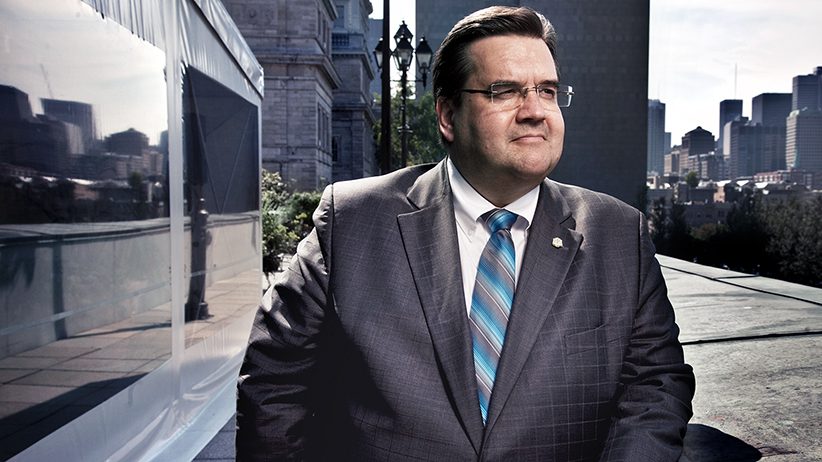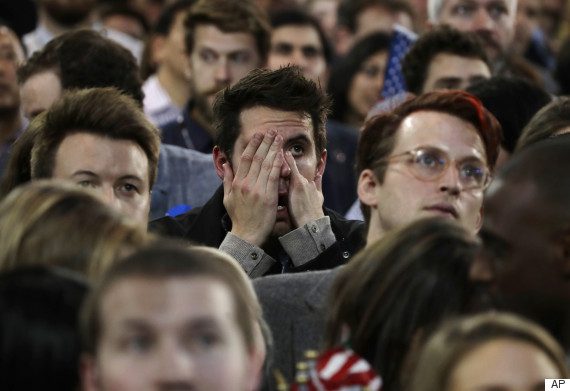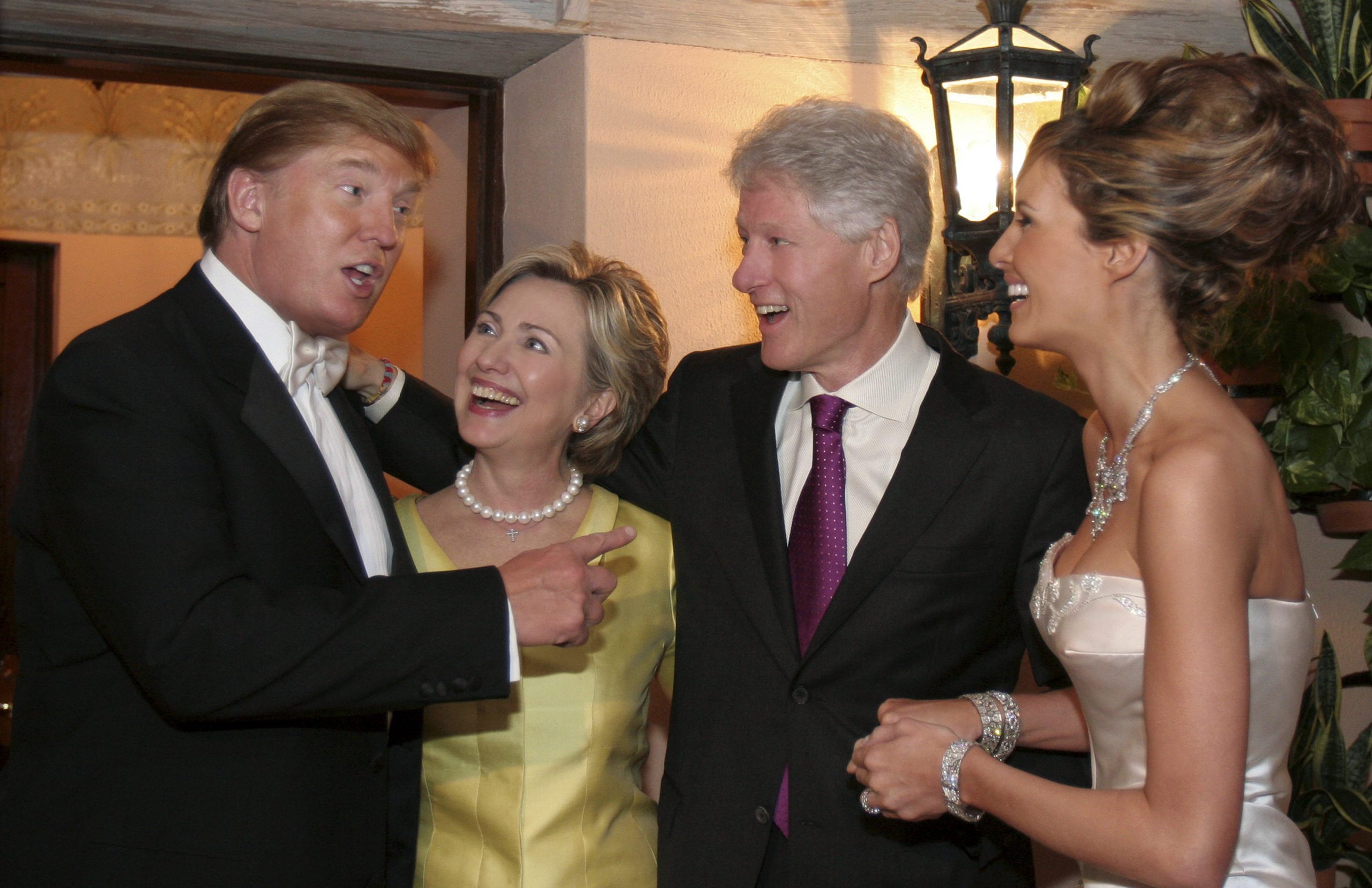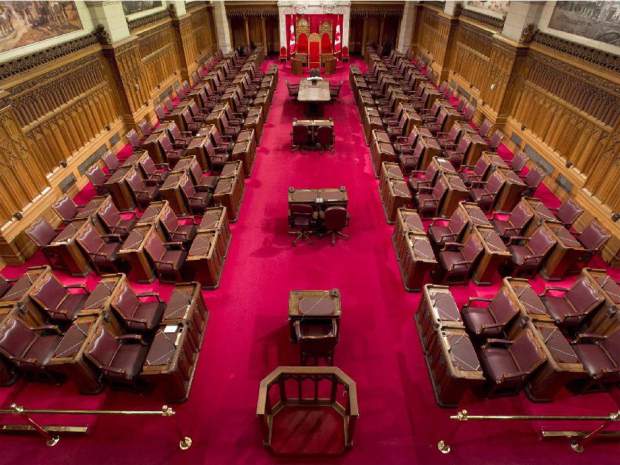First thing Monday morning in the new Trudeau era, news came that they had removed the portrait of the Queen from the lobby of the Lester B. Pearson building home of the newly renamed department of Global Affairs Canada and replaced it with the two paintings by Alfred Pellan that had hung there previously. Try as I might, I can't help but feel a certain sense of foreboding with the move.
The two paintings, Canada East and Canada West, had hung in the Pearson lobby since 1973, when Queen Elizabeth herself first opened the building. The paintings were originally commissioned for the first Canadian mission in Brazil when it was opened in 1944, after Pellan had returned from Paris and the Second World War. They were pulled down in 2011 on orders of John Baird in advance of the visit of Prince William and Kate, around the same time that a directive went out to all of our embassies and missions to display portraits of the Queen, seeing as she's our Head of State after all.
What bothers me about the fact that one of the first things the Liberals did was pull down the Queen's portrait is the fact that it confirms the ways in which the Conservatives politicized the monarchy during their decade in power. The initial decision by Baird to replace the Pellan paintings was characterized by Liberal and NDP partisans as some slight against Canadian heritage or identity, and when the Conservatives made some other moves, like restoring the "Royal" designations to the Royal Canadian Navy and the Royal Canadian Air Force (previously "Maritime Command" and "Air Command"), they were taken as partisan moves akin to revisionist history. It remains, in my mind, the height of irresponsibility for the Liberals and NDP to have allowed the Conservatives to politicize the monarchy with these kinds of characterizations rather than extending the recognition that as a constitutional monarchy, the Crown belongs to all Canadians and shouldn't be used as one party's branding exercise.
It's also important to remember some of the reasons why the monarchy works so well in our system of government, and in many respects, it's because it keeps the power dynamics of government of the day in check. Because power belongs to the sovereign, any prime minister or ruling party is only ever exercising it on her behalf. And because she remains as the Head of State, with her face being the one that we see on postage stamps, coins and twenty-dollar bills, it keeps the public from transferring too much public adulation to the prime minister of the day. The power doesn't belong to him or her, they aren't the living embodiment of the country they merely exercise the authority to govern because they command the confidence of our representatives right now, and that can change at a moment's notice.
The monarchy is also useful in that it provides the kind of celebrity focus rather than on our political figures. By keeping them at the centre of our pomp and ceremony, it keeps the trappings of power from going to the heads of our governments. It extends to the ways in which we keep out politicians' families out of the news. We don't have a "First Family" (nor indeed a "First Lady") in Canada because we have a royal family. Not only to they occupy the same place as being the family of the head of state, but it keeps the pressure off of a regular politician's family from needing to embody a nation, and that can be a pretty important consideration when considering the role of public life.
Of course, this is part of where the issue of the Queen's portrait starts to become relevant to what's going on today. In the early days of the Harper government, there was more of a move to try and reshape the government in his image "Harper Government" branding on official government releases (once the Canada's New Governmentâ„¢ shtick had worn off), combined with Harper's continued propensity to breach protocol with things like getting military salutes on Remembrance Day and Canada Day activities reserved for the monarch or her representative, being the Governor General there seemed to be a genuine sense of overstep, which many of us (myself included) took to be a case of presidential envy. But then something changed.
After about the second royal visit, when Harper was schooled on his protocol and he stopped overreaching in what he was allowed to participate in, his conversion to monarchism seemed to really take hold, and the renaming and reaffirmation of our status as a constitutional monarchy really took off to the point where it was a bit weird, but while people moaned about it being a throwback to a colonial era, what they didn't really recognize was the way in which it blunted a lot of Harper's worst instincts for self-aggrandizement.
We are now coming up on an era of a government led by a bona fide celebrity, who has a very powerful personality, and whose personal brand is stamped all over his government, even if it is a new era of decentralization and cabinet government. It's exactly the kind of thing that the monarchy is designed to help blunt when it comes to the exercise of power. While Trudeau has promised not to start rebranding the government as Harper did (and so far has said that they won't be rolling back the royal designations within the Canadian Forces), we should beware how much his image starts being tied to the government in an official capacity. Will his portrait start showing up in embassies in a more prominent place than the Queen's? Will his place as number three in the photo line-up be respected as the government starts to take on his stamp? Time will tell, but the removal of the Queen's portrait in the Pearson matters more than you might think it does.














